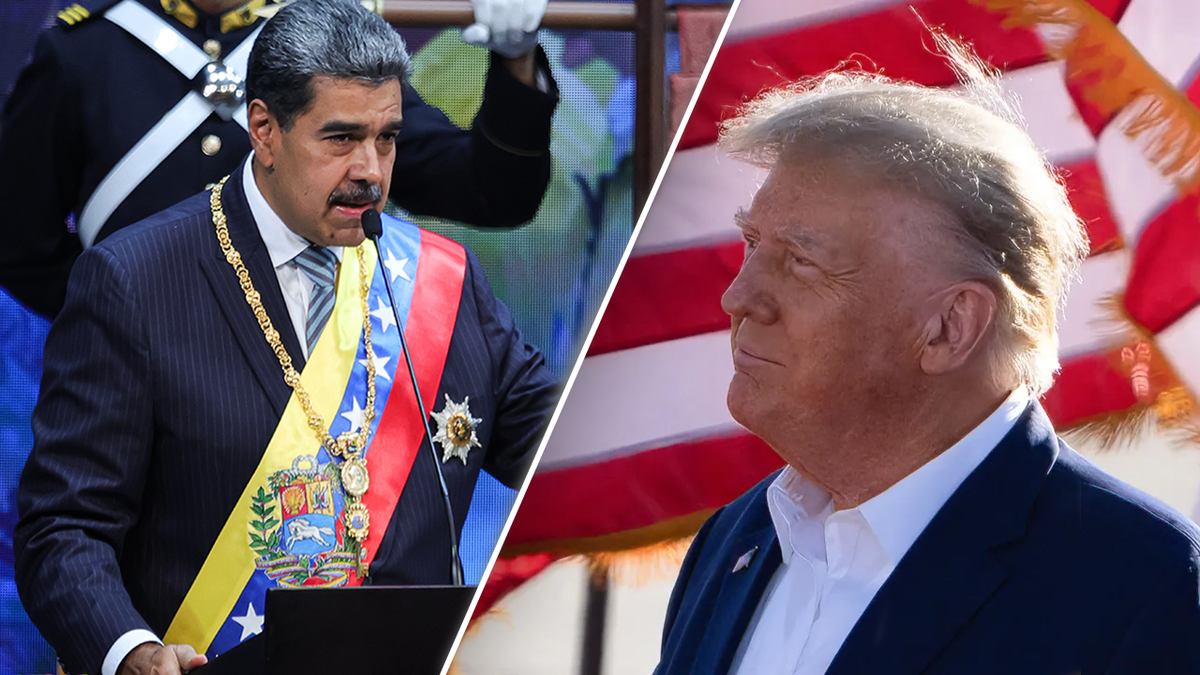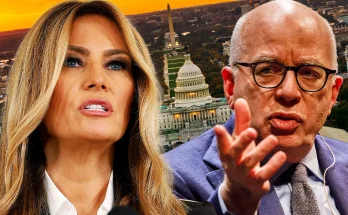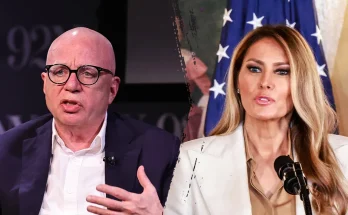When Donald Trump authorized a covert CIA operation against Venezuela last week, he expected the world to see strength — a warning shot to a nation he called a “criminal sanctuary.” But what happened next, within
less than 24 hours, stunned diplomats from Washington to Geneva. Venezuelan President Nicolás Maduro didn’t flinch. He struck back — fast, loud, and with the precision of a man who knew exactly how to make Trump look foolish on the global stage.
The Threat Heard Around the Hemisphere

From his Florida estate, Trump spoke with characteristic bravado: “We’re looking at all options to deal with the criminal cartels in Venezuela — all options are on the table.”
Behind the scenes, intelligence sources confirmed that Trump had authorized a covert CIA operation targeting cartel-linked networks in the Caribbean, allegedly operating under Venezuelan protection. To his supporters, it was another example of “America First” toughness.
To the rest of the world, it was déjà vu — a dangerous echo of past interventions cloaked in anti-drug rhetoric.
Decision One: The Exposure

Before the ink on Trump’s statements could dry, Maduro went on national television. His voice thundered through Caracas as he accused Washington of orchestrating a coup under the banner of “counter-narcotics.”
“What the U.S. calls an operation,” he said, “is nothing more than an illegal attempt to destabilize our government — a coup d’état by the CIA.”
That single line pierced the illusion of secrecy. By publicly naming the CIA, Maduro transformed what was supposed to be a hidden maneuver into an international scandal. Within hours, the clip spread across Latin American media, painting the U.S. not as liberators — but aggressors.
Decision Two: The Defiance

The following morning, Venezuelan television broadcast live footage of soldiers marching under banners that read “Patria No Se Rinde” — The Homeland Does Not Surrender.
Maduro had ordered full-scale military exercises across multiple states, a show of strength meant to demonstrate that Venezuela was not afraid of Trump’s threats. Tanks rolled across dusty plains, fighter jets streaked across the Caribbean sky, and the message was unmistakable: any strike against Venezuela would be met, symbolically or literally, with force.
Even allies of the U.S. began urging caution. A European diplomat in Geneva called it “a catastrophic PR move for Washington,” adding, “Maduro just turned Trump’s threat into his victory parade.”
Decision Three: The Counter-Move at Sea
As U.S. forces reportedly hit vessels in the Caribbean suspected of smuggling operations, Maduro announced a new initiative — a “Maritime Search and Rescue Command.”
Officially, the mission was humanitarian: to locate missing Venezuelan fishermen. Unofficially, it allowed Venezuela to send armed patrols into contested waters under a legal pretext, effectively reclaiming the narrative of control.
It was a masterstroke of optics — one that made U.S. military activity look like aggression while framing Venezuela as the defender of life and sovereignty.
A Battle of Perception

By nightfall, Trump’s declaration of dominance had become an internet punchline. Hashtags like #MaduroWinsAgain and #TrumpTheClown trended across South American platforms. In Washington, aides scrambled to reframe the event as “a strategic recalibration,” while conservative media doubled down, insisting that “tough talk was necessary.”
But perception matters in politics — and perception had turned.
What was meant to showcase Trump’s strength became a reminder of his impulsiveness. Maduro, once mocked as cornered and weak, suddenly looked composed, deliberate, even calculating.
The Deeper Message
Beyond the political theater, the episode underscores something larger: the world is no longer watching America in fear — it’s watching in judgment. Trump’s old playbook of threats and covert ops is losing its audience.
Maduro didn’t need weapons to fight back — just timing, words, and the world’s skepticism of Washington’s motives. In 24 hours, he turned an American strike into a Venezuelan stage.



